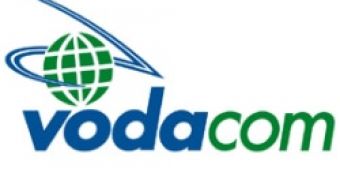Vodacom, the largest mobile operator in South Africa, has announced the availability of the country's first HSUPA (High Speed Uplink Packet Access) 3G service, accessible all over its nationwide network as of yesterday.
Coming to improve the "HSDPA 3.6" service that Vodacom is currently offering, the new HSUPA technology will enable users to benefit from upload speeds of up to 1.4 Mbps, plus download speeds of up to 3.6 Mbps. Both the HSDPA and HSUPA services make Vodacom's 3G network an advanced bi-directional one.
Alan Knott-Craig, Chief Executive Officer, Vodacom Group, said in a press release published on the company's website: "Vodacom continues to set the pace in wireless broadband technology in South Africa. With HSUPA, our customers will now have access to the fastest down- and upload speeds available, offering them a true broadband experience."
"With the launch of Vodacom's HSUPA service," continued Mr. Knott-Craig, "customers who have opted to use HSDPA 3.6 for a fixed fee of R49.00 per month, will automatically receive HSUPA and experience the latest wireless broadband technology, offering the best and fastest mobile broadband available".
Vodacom is a joint-venture equally owned by Telkom, a South African company, and Vodafone, the famous global operator (this explaining the Vodacom name). Besides South Africa, the carrier also offers mobile services in the Democratic Republic of Congo, Tanzania, Mozambique and Lesotho.
Vodacom has more than 25 million South African subscribers, clearly distancing itself from the country's other two operators: MTN, which has about 15 million customers and Cell C, which offers services to only 4 million users.
At the moment, South Africa has around 39 million mobile users and a mobile penetration rate of 87%. There are still almost 5 million people that don't have a mobile phone yet. With the launch of its new HSUPA service, Vodacom will try to attract as many new users as possible from those 5 million mobile-less people.

 14 DAY TRIAL //
14 DAY TRIAL //